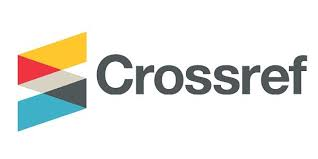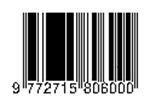ANALISIS KEMAMPUAN GURU IPA TENTANG TECHNOLOGICAL PEDAGOGICAL CONTENT KNOWLEDGE PADA SMP/MTs DI KOTA ENDE
DOI:
https://doi.org/10.37478/optika.v4i1.413Abstract
Penelitian ini bertujuan untuk mengetahui tingkat kemampuan dan korelasi antar komponen TPACK guru-guru IPA pada SMP/MTs di Kota Ende Kabupaten Ende provinsi Nusa Tenggara Timur. Metode yang digunakan dalam penelitian ini adalah survei dengan memberi angket kepada guru-guru. Analisis data menggunakan rumus Spearman-Rho (?). Hasil penelitian menunjukkan: 1) tingkat komponen TPACK guru IPA SMP/MTs di kota Ende berada pada tingkat cukup tinggi dan tinggi; 2) hasil korelasi bahwa: a) korelasi lemah terjadi antara CK dengan TCK; b) korelasi sedang terjadi antara CK dengan PCK, PK dengan TPK, dan CK dengan TPACK, PK dengan TPACK, PCK dengan TPACK, dan TCK dengan TPACK; c) korelasi kuat terjadi antara TK dengan TCK dan TK dengan TPACK; serta d) korelasi sangat kuat terjadi antara TPK dengan TPACK
Downloads
Keywords:
Analisis Kemampuan, Technological Pedagogical Content Knowledge, Guru IPAReferences
Agyei, Douglas & Voogt, Joke. (2012). Developing technological pedagogical content knowledge in pre-service mathematics teachers through collaborative design. Australasian Journal of Educational Technology. 28. 547-564. 10.14742/ajet.827.
Angeli, Charoula & Valanides, Nicos. (2013). Technology Mapping: An Approach for Developing Technological Pedagogical Content Knowledge. Journal of Educational Computing Research. 48. 199-221. 10.2190/EC.48.2.e.
Davidowitz, Bette & Potgieter, Marietjie. (2016). Use of the Rasch measurement model to explore the relationship between content knowledge and topic-specific pedagogical content knowledge for organic chemistry. International Journal of Science Education. 1-21. 10.1080/09500693.2016.1196843.
Cochran F., Kathryn & A. DeRuiter, J & A. King, R. (1993). Pedagogical Content Knowing: An Integrative Model for Teacher Preparation. Journal of Teacher Education. 44. 263-272. 10.1177/0022487193044004004.
Hamzah, Mahizer. (2016). Primary Science Teachers' Perception of Technology Pedagogical and Content Knowledge (TPACK) in Malaysia. European Journal of Social Sciences Education and Research. 6. 167-179. 10.26417/ejser.v6i2.p167-179.
Handal, B., Campbell, C., Cavanagh, M., Petocz, P., & Kelly, N. (2013). Technological pedagogical content knowledge of secondary mathematics teachers. Contemporary Issues in Technology and Teacher Education, 13(1), 22-40.
Hasibuan, N. (2016). Pengembangan Pendidikan Islam Dengan Implikasi Teknologi Pendidikan. FITRAH:Jurnal Kajian Ilmu-ilmu Keislaman, 1(2), 189-206. doi:https://doi.org/10.24952/fitrah.v1i2.313
Hsu, Liwei & Chen, Yen-Jung. (2018). Teachers’ Knowledge and Competence in the Digital Age: Descriptive Research within the TPACK Framework. International Journal of Information and Education Technology. 8. 455-458. 10.18178/ijiet.2018.8.6.1081.
Hwee, Joyce & Koh, Joyce & Chai, Ching. (2011). Modeling pre-service teachers' technological pedagogical content knowledge (TPACK) perceptions: The influence of demographic factors and TPACK constructs. ASCILITE 2011 - The Australasian Society for Computers in Learning in Tertiary Education.
Jordan, K. (2011). Beginning Teacher Knowledge: Results from a Self-Assessed TPACK Survey. Australian Educational Computing, 26, 16-26.
Kanuka, H. (2006). Instructional design and e-learning: A discussion of pedagogical content knowledge as a missing construct. The e-Journal of Instructional Science and Technology, 9(2). [online].Retrieved January 25, 2008, from http://www.usq.edu.au/electpub/ejist/docs/vol9_no2/papers/full_papers/kanuka.htm
Koehler, M. J. & Mishra, P. (2005). What happens when teachers design educational technology? The development of Technological Pedagogical Content Knowledge. Journal of Educational Computing Research. 32(2), 131-152. [PDF]
Koehler, M. J. & Mishra, P. (2008). Introducing technological pedagogical content knowledge. In AACTE Committee on Innovation and Technology (Eds.), Handbook of technological pedagogical content knowledge for teaching and teacher educators, 3-29. New York: Routledge.
Koehler, M.J., Mishra, P., & Yahya, K. (2007). Tracing the development of teacher knowledge in a design seminar: Integrating content, pedagogy and technology. Computers & Education, 49, 740-762.
Köse, Naran Kayacan. 2016. Technological Pedagogical Content Knowledge (TPACK) Of English Language Instructors. Journal of Educational and Instructional in The World Studies: Volume: 6 Issue: 2 Article: 02 ISSN: 2146-7463.
Margerum-Leys, J., & Marx, R. W. (2002). Teacher knowledge of educational technology: A case study of student/mentor teacher pairs. Journal of Educational Computing Research, 26(4), 427-462. https://doi.org/10.1092/KQCF-BLX2-TCHV-AGA4
Mishra, P., & Koehler, M.J. (2008, March). Introducing technological pedagogical content knowledge.
Neumann, Knut & Kind, Vanessa & Harms, Ute. (2018). Probing the amalgam: the relationship between science teachers’ content, pedagogical and pedagogical content knowledge. International Journal of Science Education. 1-15. 10.1080/09500693.2018.1497217.
Niess, M. L. (2005). Preparing teachers to teach science and mathematics with technology: Developing a technology pedagogical content knowledge. Teaching and Teacher Education, 21(5), 509-523.
Polly, D., Mims, C., Shepherd, C.E. & Inan, F. (2010). Evidence of impact: Transforming teacher education with preparing tomorrow's teachers to teach with technology (PT3) grants. Teaching and Teacher Education: An International Journal of Research and Studies, 26(4), 863-870. Elsevier Ltd. Retrieved May 25, 2019 from https://www.learntechlib.org/p/76140/.
Restiana, Nena & Pujiastuti, Heni. (2019). Pengukuran Technological Pedagogical Content Knowledge untuk Guru Matematika SMA di Daerah Tertinggal. Mosharafa: Jurnal Pendidikan Matematika. 8. 83-94. 10.31980/mosharafa.v8i1.407.
Rodríguez Moreno, Javier & Agreda Montoro, Miriam & Ortiz-Colón, Ana. (2019). Changes in Teacher Training within the TPACK Model Framework: A Systematic Review. Sustainability. 11. 1870. 10.3390/su11071870.
Roig-Vila, R., Mengual-Andrés, S., & Quinto-Medrano, P. (2015). Primary teachers’ technological, pedagogical and content knowledge. [Conocimientos tecnológicos, pedagógicos y disciplinares del profesorado de Primaria]. Comunicar, 45, 151-159. https://doi.org/10.3916/C45-2015-16
Rollnick, M., & Davidowitz, B. (2015). Topic Specific PCK of Subject Matter Specialists in Grade 12 Organic Chemistry. In D. Huillet (Ed.), Proceedings of the 23rd Annual Meeting of the Southern African Association for Research in Mathematics, Science and Technology Education (pp. 243-250). Eduardo Mondlane University, Maputo: SAARMSTE..
Sam E. O. Aduwa-Ogiegbaen (2009) Nigerian Inservice Teachers’ Self-Assessment in Core Technology Competences and Their Professional Development Needs in ICT, Journal of Computing in Teacher Education, 26:1, 17-28, DOI: 10.1080/10402454.2009.10784627
Schmidt-Crawford, Denise & Baran, Evrim & Thompson, Ann & Mishra, Punya & Koehler, Matthew & Seob, Shin. (2009). Technological Pedagogical Content Knowledge (TPACK): the development and validation of an assessment instrument for preservice Teachers. Journal of Research on Technology in Education. 42. 123-149. 10.1080/15391523.2009.10782544.
Shulman, L. S. (1986). Those who understand: Knowledge growth in teaching. Educational Researcher, 15(2), 4–14.
Sugiyono. (2013). Metode Penelitian Kuantitatif, Kualitatif dan R&D.Bandung: Alfabeta.CV
UNESCO. (2011). ICT competency framework for teachers version 2.0.
Downloads
Published
How to Cite
Issue
Section
License
Jurnal Lesensi











